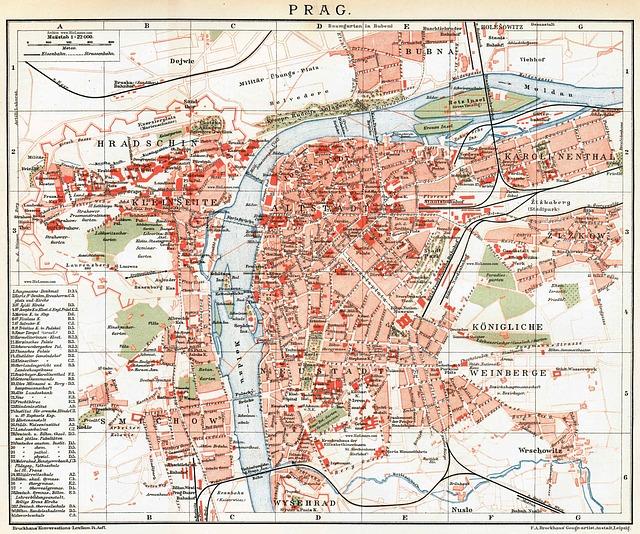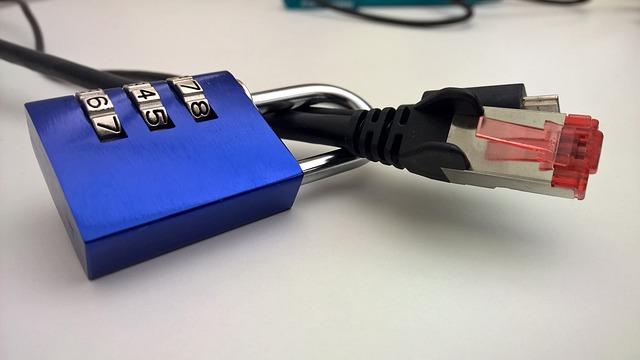The Panorama of Micro-Credentials in Finland: Alternatives and Challenges
The implementation of micro-credentials in Finland presents a variety of thrilling alternatives for learners and educators alike. By providing versatile, short-term programs that concentrate on ability acquisition, Finland has positioned itself on the forefront of instructional innovation. The important thing benefits embody:
Enhanced Employability: Micro-credentials allow people to swiftly upskill in response to altering job market calls for.Personalised Studying Paths: Learners can tailor their training to suit particular profession targets, permitting for a extra focused strategy.Collaboration with Trade: Instructional establishments are more and more partnering with companies to make sure that choices mirror real-world wants.
Nevertheless, whereas the advantages are vital, challenges stay within the widespread adoption of micro-credentials. Key hurdles embody:
Lack of Standardization: The absence of universally acknowledged standards can create confusion in regards to the worth of micro-credentials amongst employers.Funding and Assets: Instructional establishments could battle with the monetary funding required to develop and implement these applications.Consciousness and Acceptance: There’s nonetheless a necessity to lift consciousness amongst each employers and potential learners concerning some great benefits of micro-credentials.

Evaluating the Slovak Republics Strategy to Micro-Credential Coverage
The Slovak Republic has launched into an bold journey to combine micro-credentials into its instructional framework,aiming to foster a extra versatile and responsive expertise growth system. Central to this initiative is a dedication to adapt the educational panorama to the wants of each college students and employers, facilitating a smoother transition into the workforce. This includes a number of key parts:
Collaboration with trade stakeholders: Making certain that micro-credentials align with labor market calls for.High quality assurance mechanisms: Establishing clear requirements and analysis processes for the popularity of micro-credentials.consciousness campaigns: Selling the worth and applicability of micro-credentials amongst learners, educators, and employers.
This strategic strategy goals to deal with a number of the challenges confronted in implementing micro-credential insurance policies, akin to fragmentation in training techniques and discrepancies between {qualifications} acquired. to gauge the effectiveness of those measures, the Slovak Republic is using a mixture of data-driven assessments and stakeholder suggestions to repeatedly refine its insurance policies. A vital side of this analysis course of is monitoring the participation and success charges of people who pursue micro-credentials, thereby making certain these choices not solely fill present expertise gaps but in addition empower learners to reinforce their employability.
Key Areas of FocusCurrent StatusFuture GoalsIndustry CollaborationIn progressStrengthen partnershipsquality AssuranceEstablished guidelinesBroaden recognitionPublic AwarenessActive campaignsIncrease engagement

Slovenias Progressive Framework for Micro-Credentials and Lifelong Studying
Slovenia is main the cost in advancing its framework for micro-credentials and fostering a tradition of lifelong studying. This progressive strategy is centered across the recognition of casual and non-formal studying paths, offering people with versatile alternatives to achieve {qualifications} which are aligned with the evolving calls for of the labor market. Key parts of this framework embody:
Collaboration between instructional establishments and industries: Selling partnerships to make sure that micro-credentials are related and relevant.High quality assurance mechanisms: Establishing requirements to ensure the credibility of micro-credentials.Integration inside nationwide qualification frameworks: Aligning micro-credentials with present techniques for clear recognition.
This progressive framework not solely advantages people looking for profession development but in addition enhances Slovenia’s competitiveness on a worldwide scale. The federal government is actively advocating for insurance policies that facilitate entry to those instructional choices, making certain a strong assist system for learners of all ages. An emphasis on inclusivity is essential, because it goals to deal with the varied wants of the inhabitants. The next desk illustrates the anticipated outcomes of Slovenia’s initiative:
OutcomesImpact on LearnersIncreased employabilityHigher possibilities of securing related employmentSkill diversificationEnhanced adaptability to market changesPersonal developmentImproved confidence and lifelong studying habits

Spains Progressive Micro-Credential Methods: Classes Realized and Finest Practices
Spain’s strategy to micro-credentials has emerged as a beacon of innovation throughout the European instructional panorama.By prioritizing versatility and inclusivity,the nation has developed a framework that permits learners to achieve helpful expertise tailor-made to market calls for. Key methods embody the mixing of employer partnerships to make sure that micro-credentials align with trade wants, fostering a direct hyperlink between training and employment. Furthermore,spain’s deal with steady studying encourages people to upskill at numerous factors of their careers,selling a tradition of lifelong training. This holistic technique not solely helps particular person learners but in addition enhances the general competency of the workforce.
The teachings discovered from Spain’s micro-credential initiatives present important insights for different nations seeking to improve their instructional frameworks. Among the many finest practices recognized are the institution of clear high quality assurance measures to take care of the integrity of micro-credentials,in addition to the promotion of cross-border recognition to facilitate mobility amongst learners.Moreover, leveraging digital platforms for the issuance and verification of micro-credentials has confirmed efficient in growing accessibility and readability. Spain’s progressive methods function a mannequin for nations like Finland,the Slovak Republic,and Slovenia,highlighting the significance of adaptability and collaboration within the evolving instructional panorama.

suggestions for Enhancing Micro-Credential Insurance policies Throughout Europe
To strengthen the framework of micro-credentialing throughout Europe, it’s important to ascertain coordinated insurance policies that promote consistency and cut back the fragmentation at present noticed amongst member states. Collaborative efforts ought to deal with creating a typical definition of micro-credentials, making certain they adhere to clear high quality assurance mechanisms. This may improve recognition and portability of micro-credentials, enabling learners to transition seamlessly throughout nations and enhancing workforce mobility. Moreover,participating stakeholders akin to instructional establishments,employers,and regulatory our bodies within the policy-making course of can foster a stronger alignment with market wants and studying outcomes.
Furthermore, as micro-credentials turn into extra prevalent, investing in strong digital infrastructures is paramount to delivering and managing these instructional choices successfully. Governments ought to contemplate implementing centralized platforms that permit for straightforward entry, monitoring, and verification of micro-credentials. This is able to not solely simplify processes for learners and employers but in addition bolster confidence within the validity of those {qualifications}. Moreover, selling consciousness campaigns to coach each learners and employers in regards to the worth of micro-credentials can improve their uptake and integration into lifelong studying techniques throughout Europe.

A Unified European technique for Micro-Credentials: Bridging Nationwide Efforts and Frequent Objectives
Because the demand for versatile studying pathways continues to develop throughout Europe, the necessity for a cohesive micro-credential technique has by no means been extra urgent. Nations akin to Finland, the Slovak Republic, Slovenia, and Spain are making ample progress on this route. Every of those nations is embracing innovation in training by creating frameworks that facilitate the popularity and switch of micro-credentials. This alignment not solely enhances particular person employability but in addition contributes to easing labor market shortages by linking training suppliers extra intently with trade wants. The institution of clear tips throughout numerous sectors will be sure that micro-credentials are aligned with each nationwide {qualifications} frameworks and European requirements.
With a view to successfully bridge nationwide efforts and customary targets, collaboration on the European stage is essential.initiatives may be seen the place nations are:
Sharing finest practices: Leveraging affluent case research to tell broader policy-making.Making certain high quality assurance: Creating unified standards for assessing the worth and rigor of micro-credentials.Enhancing visibility: Creating platforms for higher dissemination of information concerning out there micro-credentials.
The next desk summarizes outstanding micro-credential initiatives in these 4 nations:
CountryKey InitiativeFocus AreaFinlandDigital CompetenceICT SkillsSlovak RepublicFlexi-educationAdult LearningSloveniaMicro-credential platformProfessional DevelopmentSpainindustry AlignmentEngineering Fields

to sum up
the implementation of micro-credential insurance policies throughout Finland, the Slovak Republic, Slovenia, and Spain displays a big shift in the direction of extra versatile, personalised training techniques which are attentive to the calls for of the modern workforce. As these nations navigate the complexities of integrating micro-credentials into their instructional frameworks, they set essential precedents for lifelong studying and expertise growth. The OECD’s insights underscore the significance of collaboration amongst stakeholders, the necessity for clear insurance policies, and the need of high quality assurance mechanisms to maximise the impression of micro-credentials. As the worldwide panorama of training continues to evolve, the experiences of those nations could function helpful classes for others looking for to reinforce their studying ecosystems. The continued dialogue and analysis on this discipline will undoubtedly contribute to a extra expert and adaptable workforce, well-equipped to face future challenges.
Source link : https://europ.info/2025/02/22/slovenia/micro-credential-policy-implementation-in-finland-the-slovak-republic-slovenia-and-spain-oecd/
Creator : Charlotte Adams
Publish date : 2025-02-22 22:16:00
Copyright for syndicated content material belongs to the linked Source.


